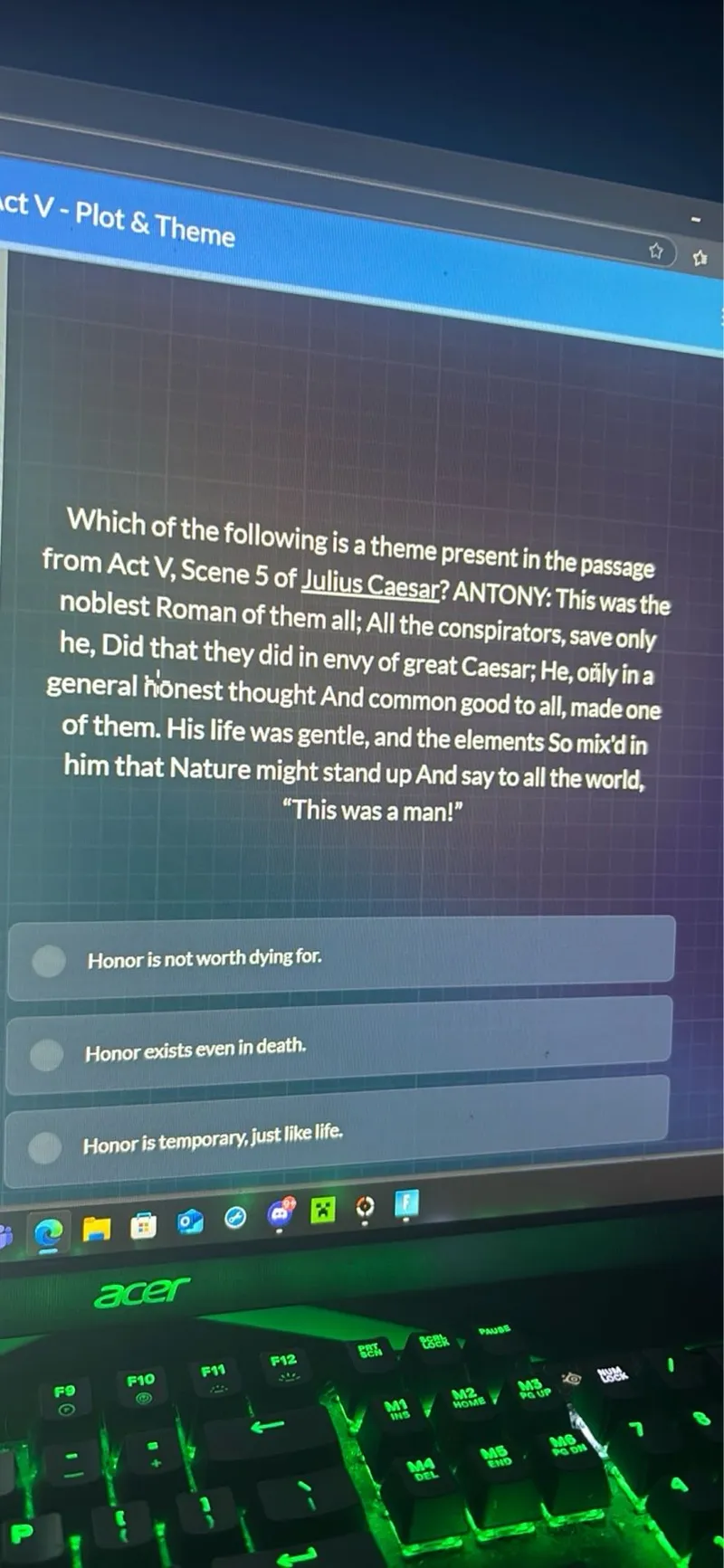Questions: Which of the following is a theme present in the passage from Act V, Scene 5 of Julius Caesar? ANTONY: This was the noblest Roman of them all; All the conspirators, save only he, Did that they did in envy of great Caesar; He, only in a general honest thought And common good to all, made one of them. His life was gentle, and the elements So mix'd in him that Nature might stand up And say to all the world, "This was a man!" Honor is not worth dying for. Honor exists even in death. Honor is temporary, just like life.

Transcript text: Which of the following is a theme present in the passage from Act V, Scene 5 of Julius Caesar? ANTONY: This was the noblest Roman of them all; All the conspirators, save only he, Did that they did in envy of great Caesar; He, only in a general honest thought And common good to all, made one of them. His life was gentle, and the elements So mix'd in him that Nature might stand up And say to all the world, "This was a man!"
Honor is not worth dying for.
Honor exists even in death.
Honor is temporary, just like life.





